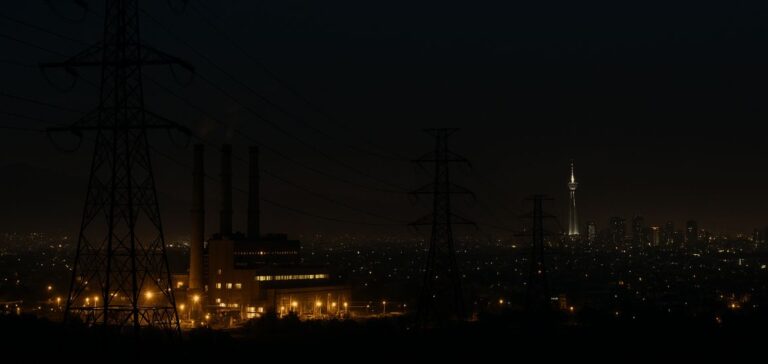Iranian authorities plan to cap daily electricity outages for households at two hours from May 10, in response to a surge in consumption driven by rising summer heat. The load-shedding programme will be implemented more systematically and with improved coordination, according to Reza Kafili, a senior official in the national electricity grid, as reported by Mehr news agency.
Targeted cuts in agriculture and industry
The agricultural and industrial sectors remain the most affected by power interruptions, particularly between 11:00 and 16:00. Many poultry farms and livestock facilities are not connected to industrial power grids, making them more vulnerable to unplanned outages caused by equipment failures or enforced rationing. Reza Kafili acknowledged the “ongoing frustration” this has caused among business operators.
The government also confirmed that all public administration buildings have been equipped with smart meters, designed to automatically reduce power supply if consumption exceeds authorised thresholds. This measure aims to better regulate public sector energy use without resorting to extended shutdowns.
A grid under pressure despite energy resources
Despite its substantial oil and natural gas reserves, Iran continues to experience recurrent energy shortages due to ageing production and distribution infrastructure, as well as the impact of international economic sanctions. Power outages have become a routine management strategy, occurring both in summer and winter.
President Massoud Pezeshkian, in office since July, reiterated the government’s efforts to control national electricity usage. He stated that restrictions would first apply to government buildings and called on public institutions to lead by example in energy efficiency. Several public campaigns have been launched to encourage citizens to cut back on energy consumption.
Track record of nationwide load-shedding
Iran has previously implemented public sector slowdowns during periods of high energy demand. In July last year, working hours in government offices were reduced, and in December, street lighting on several main roads in Tehran was suspended at night. These actions reflect a policy of adjustment in response to a structural gap between energy supply and domestic demand.
“When it is necessary to impose consumption restrictions, they will apply first to government offices,” President Pezeshkian said on Wednesday, as quoted by state media.






















